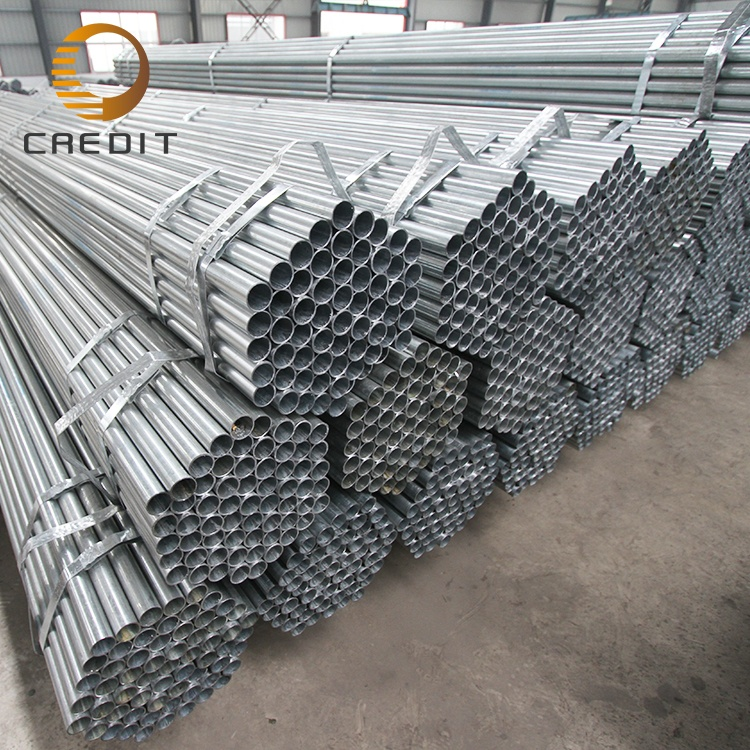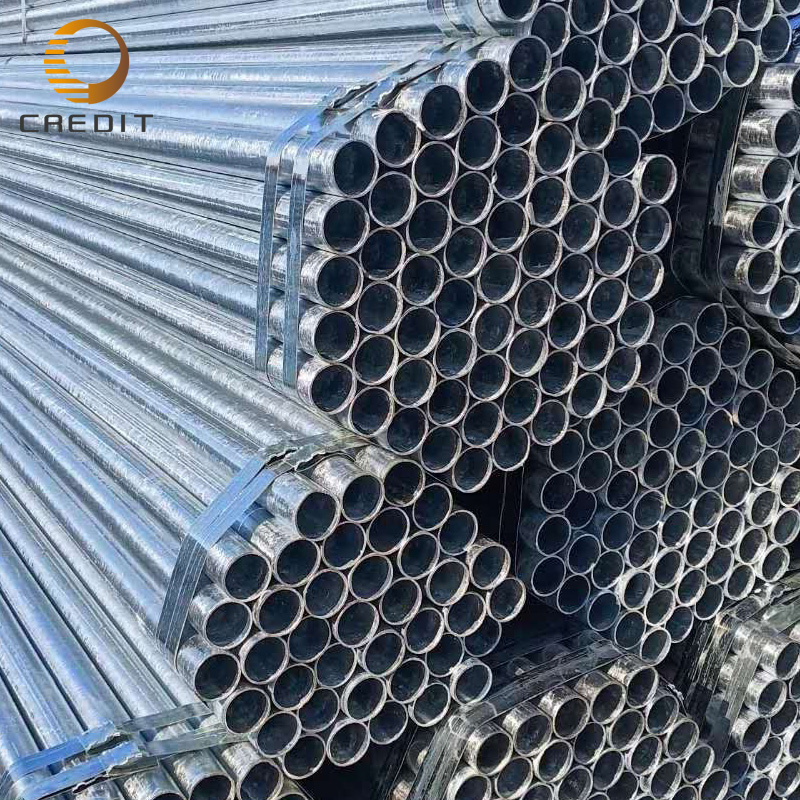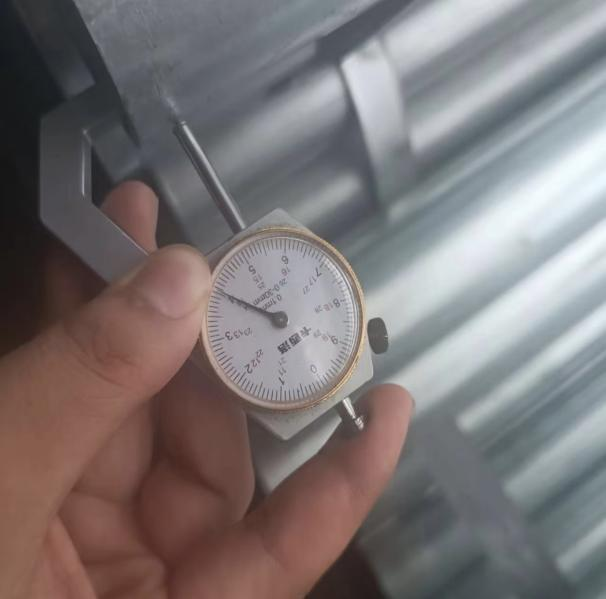Galvanized steel pipes are steel tubes treated with either hot-dip or electro-galvanizing processes on the surface, offering excellent corrosion resistance and extended service life. Hot-dip galvanizing involves immersing steel pipes into molten zinc to form a dense protective coating, while electro-galvanizing uses an electrolytic method to apply a zinc layer, which is more suitable for environments with lower corrosion resistance requirements.
Common specifications of galvanized steel pipes include outer diameters ranging from 15mm to 165mm, wall thickness from 1.5mm to 5.0mm, and standard lengths typically at 6 meters. These pipes are produced in accordance with both domestic and international standards, such as GB/T 3091, ASTM A53, and EN 10255, serving various sectors including construction, water supply, and electrical systems.

Galvanized steel tubes are widely used in scaffolding structures, water pipelines, greenhouse frames, electrical conduit protection, and municipal guardrails. Compared with ordinary black steel pipes, galvanized pipes provide stronger anti-corrosion capabilities, making them ideal for outdoor applications. Key advantages include excellent rust resistance, high structural strength, easy installation, and cost-effectiveness, making them a popular choice in municipal and industrial projects.
Driven by policies promoting green construction and increased infrastructure investments, the galvanized pipe market is experiencing steady growth. The “Belt and Road” initiative and the rise of international construction projects have also boosted exports, especially to Southeast Asia, the Middle East, and Africa. Meanwhile, the development of new zinc-aluminum alloy coatings and advancements in intelligent manufacturing are contributing to technical upgrades in the industry.

During manufacturing, Galvanized steel round pipe undergo rigorous quality control procedures, including raw material inspection, dimensional measurement, weld testing, zinc coating thickness verification, mechanical performance tests, and pressure or leak tests. These ensure compliance with national standards and customer requirements.
In summary, with their outstanding performance and wide range of applications, galvanized pipes remain an indispensable material in the future of construction and industrial sectors.

